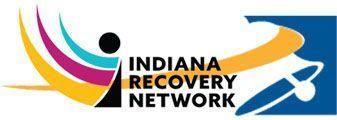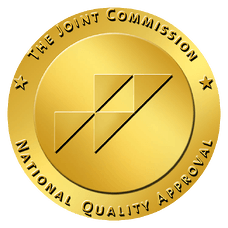Complete the pre-screen form below to initiate the admission process. Our admissions team will contact you shortly.
Group Therapy for Drug Addiction Treatment
Seeking treatment for substance use disorder typically encompasses a range of methods, one of which is group therapy. This form of therapy can offer distinct benefits and healing experiences that individuals might not experience through individual therapy or by attempting to quit independently. Continue reading to delve into the various types, advantages, and effectiveness of group therapy in addiction treatment.
What Is Addiction Group Therapy?
Group therapy for addiction is a therapeutic approach that typically involves multiple participants, therapists, and a range of therapeutic techniques. When patients engage with behavioral therapists alongside their peers, they have the opportunity to practice recovery strategies, enhance interpersonal skills, and develop or reinforce their social support networks.
The objectives and overall goals of groups can vary significantly, and they can be conducted in numerous settings. Group therapy plays a crucial role in addiction recovery during medical detox, outpatient or intensive outpatient settings, residential treatment programs, halfway houses, continuing care programs, and other environments.
Potential topics for group therapy may include:
- Strategies for early recovery and relapse prevention.
- The effects of addiction on individuals and families, as well as utilizing support systems.
- Managing co-occurring mental health disorders and other related conditions.
- Anger management and addressing substance-related issues.
Groups are frequently organized based on common characteristics among members. Some are specific to gender or age, while others focus on cultural aspects, such as those that support the LGBTQ+ community, cater to Veterans, or emphasize ethnic identity.
Being part of a group with individuals who share a substance use disorder and potentially similar life experiences helps alleviate feelings of isolation or stigma. This environment encourages the development and practice of new communication and relationship skills in a secure setting.
Many evidence-based techniques that are effective in individual therapy, such as motivational interviewing, cognitive behavioral therapy, and more, can also be effectively integrated into group therapy.
Types of Group Therapy
There are several different types of group therapy. In general, groups may be structured based on 1 of the following 5 models:
- Psychoeducational. These groups emphasize educating participants about substance use and the associated behaviors and consequences. They are generally highly structured and may adhere to a predefined curriculum.
- Skills development. The primary aim of these groups is to enhance coping skills that assist individuals in achieving and maintaining abstinence. For instance, a person might focus on developing interpersonal skills to effectively manage relationship stressors without resorting to substance use. The group environment often fosters this process naturally.
- Cognitive behavioral. Employing a well-established therapeutic framework, cognitive-behavioral groups revolve around the principle that transforming thoughts is essential for behavioral change. For example, an individual may harbor detrimental beliefs such as "I’ll never truly quit" or "I am a failure," which hinder progress. Adjusting these beliefs can open up greater pathways to sobriety and a healthier lifestyle.
- Mutual support. Often labeled as self-help groups, these require voluntary and ongoing participation to be effective. In the early stages of recovery, they may be more leader-driven and problem-focused, assisting individuals in maintaining abstinence and navigating daily challenges. As time progresses, they may shift to a more group-driven and relational dynamic. Notable examples of mutual support groups include Alcoholics Anonymous (AA) and Narcotics Anonymous (NA).
- Interpersonal process. These groups are facilitated by trained therapists who guide participants in altering fundamental psychological dynamics that contribute to substance use, both internally and in their relationships with others. Members can share insights and experiences with one another as they arise.
How Does Group Therapy for Drug Addiction Work?
Group therapy for drug addiction functions by harnessing the unique narratives and strengths of each participant, enabling members to gain insights and encouragement from one another. While the structure of sessions may vary depending on the group's objectives and focus, they generally include the following elements:
- Introductions.
- A review of the agreements that govern participation in the group, such as acceptable and unacceptable behaviors or communication methods during the meeting.
- A specific topic or goal for each session.
- A clearly defined conclusion time.
- Confidentiality assurances.
Given the diversity of addiction recovery groups available, their operational methods can differ widely. Group therapy within a substance use disorder program typically includes 6 to 12 patients alongside 1 or 2 therapists. In contrast, community-based recovery groups like Alcoholics Anonymous (AA) may adopt a more flexible format.
There are usually two types of groups: closed-member and revolving-member. Closed-member or fixed groups consist of a relatively small number of participants who remain together for a predetermined duration or goal. Certain fixed groups may allow individuals to "graduate" at different intervals, subsequently filling open slots as they arise.
Revolving-member groups tend to be larger, with participants engaging for a fixed number of sessions or only until they've achieved their goals. These groups are commonly found in inpatient settings, where individuals begin and complete their treatment at varying times, resulting in fluctuating group sizes.
Is Group Therapy Effective?
Group therapy is a powerful treatment for addiction, known for its positive impact on treatment engagement, abstinence rates, coping skills, and overall recovery support.
Additional benefits of group therapy include:
- Enhanced communication and social skills.
- Alleviation of feelings of isolation and stigma.
- Development of coping skills and strategies.
- Encouragement through positive “peer pressure” to maintain abstinence.
- Acquisition of new tools and resources that aid recovery.
- Valuable feedback on negative thought patterns or behaviors.
- Strengthened support and a sense of community that offers a family-like environment.
- Increased structure and discipline through group commitments and consistent participation. Greater hope derived from observing the recovery journeys of others.
These benefits may vary depending on the facilitator’s expertise and training, along with the group size, format, focus, and cultural considerations. Additionally, group therapy is often more cost-effective than individual therapy, with research indicating that it can lead to comparable outcomes.
Drug Addiction Treatment in Kokomo, IN
If you're facing challenges with drug or alcohol misuse or addiction, it's time to seek the help you truly deserve. Contact our inpatient rehab facility near Indianapolis to connect with one of our skilled and compassionate rehab admissions navigators. They are available to address any questions you might have, including inquiries about using insurance to cover rehab costs and the various levels of addiction treatment we provide.
Call us today at
(765) 780-7689 and embark on your journey toward recovery right now.
You aren't alone. You deserve to get help.
Wabash Recovery is located in Kokomo, Indiana, which is easily accessible from Indianapolis.
Take your next step toward recovery:
✔ learn more about our addiction treatment programs.
✔ see how popular insurance providers such as Aetna or BlueCross offer coverage for rehab.
✔ view photos of our facility.



